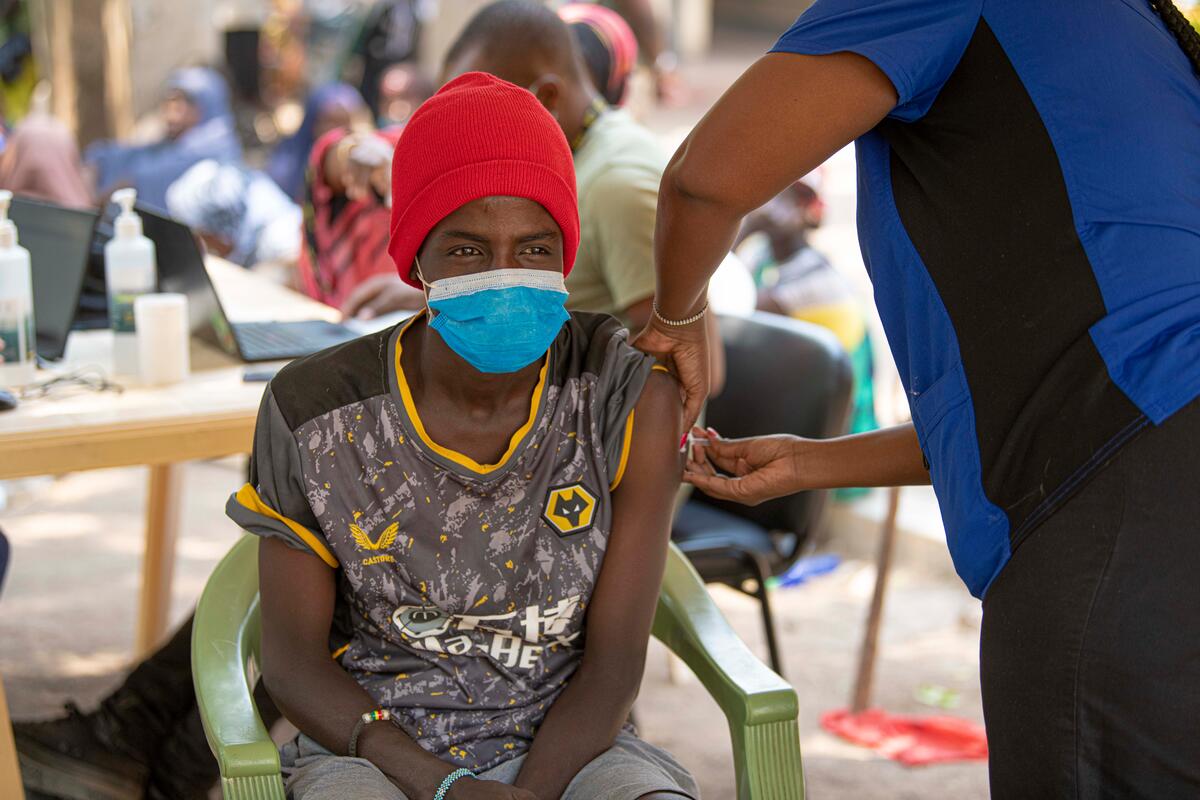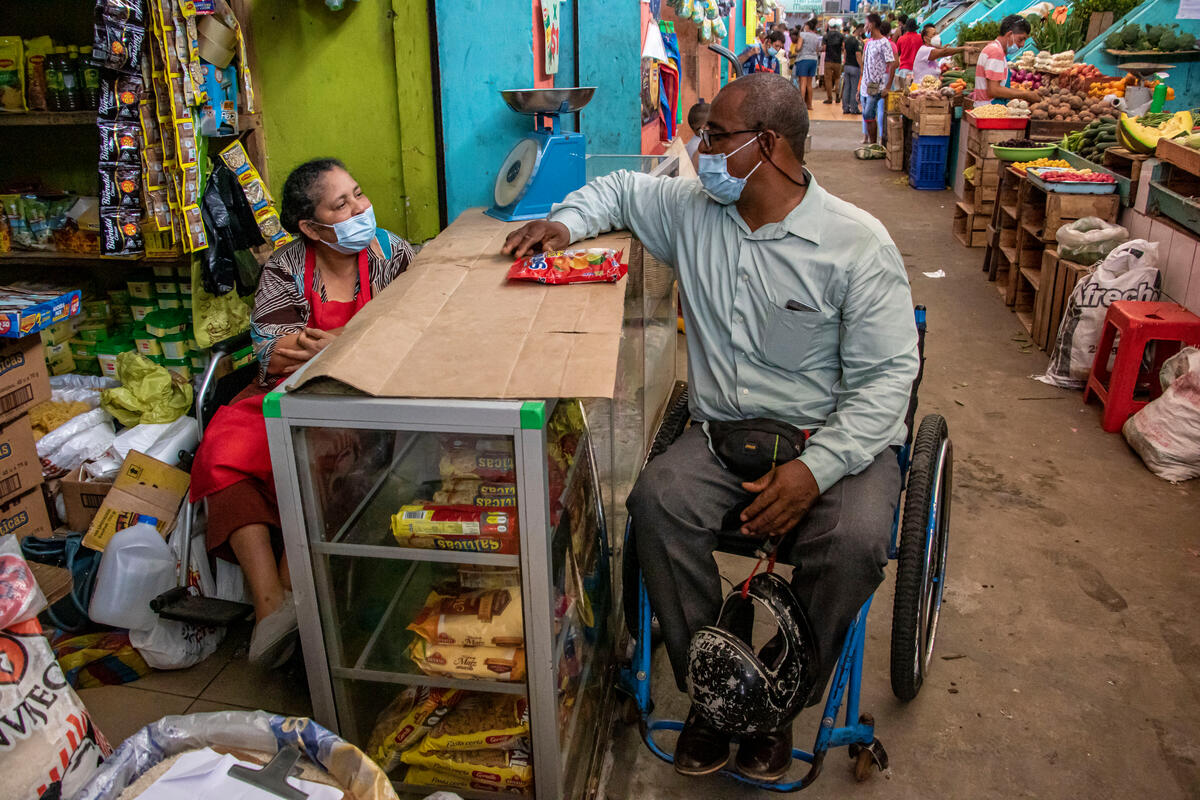D.R. Congo: violence - relief movements suspended
D.R. Congo: violence - relief movements suspended
A deteriorating security situation in Democratic Republic of the Congo's South Equateur province is forcing UNHCR to at least temporarily suspend all relief movements on the Congo River and use much more difficult land routes to reach some 11-12,000 recently arrived refugees on the Republic of Congo side. Distributions of non-food items to the 11-12,000 refugees from the DRC who crossed the river and settled on the Congolese shore around Liranga and Njoundou switched to the land routes - often very bad jungle tracks - yesterday (13 July). We are delivering stocks of supplies that were sent by barge from Brazzaville earlier this week.
Many refugees who had been living along the river in the Liranga/Njoundou area are leaving for safer locations inland near Dongou in the Congo Republic. UNHCR is sending en emergency team comprising a logistician, one protection officer and one field officer to the area. They will look at the possibility of opening new camps away from the volatile border river so we can ensure continued access to the refugees. Assistance to this caseload of refugees is extremely important because of a reported outbreak of shigella, a highly contagious disease with symptoms similar to cholera and requiring antibiotic treatment as well as oral rehydration salts and a good food ration with a high protein intake. Young children, chronically ill and elderly people are most at risk. The UNHCR medical co-ordinator is already on the site to supervise treatment there, and we are hopeful the outbreak will be rapidly controlled.
In addition to the 10-12,000 refugees in the Liranga and Njoundou area, most of whom arrived in the past few weeks after fighting resumed between DRC government forces and rebels in Equateur Province, there are another 19,000 refugees settled further along the Ubangui River, north of Impfondo, who are assisted by UNHCR. We also estimate there are another 5,000 to 10,000 refugees along the border who are in inaccessible areas, bringing the overall total of DRC refugees in the northern RoC to 35-40,000









